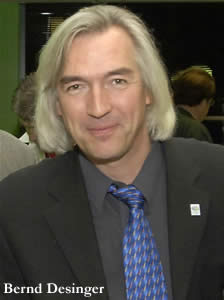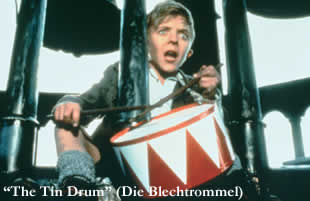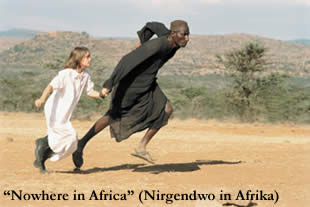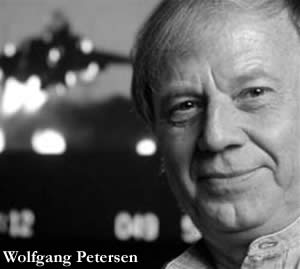 Bernd Desinger was born in 1962 in Oberhausen, Germany. He studied German language and literature, History, Psychology and Film. Bernd Desinger joined the Goethe-Institut in 1990. After postings in Germany and Athens, Greece, he became deputy director of the Goethe-Institut Toronto. In 2000 he was transferred to the Head Office in Germany, where he was in charge of film and media. In 2002 he became director of the Bonn branch of the Head Office, serving in a parallel capacity as head of the Department of Audiovisual Media. In this position he was responsible for the acquisition and co-production of documentary films. In addition, he produced an internationally distributed program series on German art and culture.
Bernd Desinger was born in 1962 in Oberhausen, Germany. He studied German language and literature, History, Psychology and Film. Bernd Desinger joined the Goethe-Institut in 1990. After postings in Germany and Athens, Greece, he became deputy director of the Goethe-Institut Toronto. In 2000 he was transferred to the Head Office in Germany, where he was in charge of film and media. In 2002 he became director of the Bonn branch of the Head Office, serving in a parallel capacity as head of the Department of Audiovisual Media. In this position he was responsible for the acquisition and co-production of documentary films. In addition, he produced an internationally distributed program series on German art and culture.
In 2005 he took over his current position as director of the Goethe-Institut Los Angeles.
Cinema Without Borders: Please tell us about the very first time that a German film was mentioned in the Academy Awards.
Bernd Desinger: The first German film to win the Academy Awards was “The Tin Drum” (Die Blechtrommel) in 1980 by director Volker Schlöndorff. Based on the novel by Nobel Prize winner Günter Grass it portrayed young Oskar Mazerath who decided at an early age not to grow up. His personal protest against the mindset of his neighborhood and his family by drumming and screaming symbolizes a rejection of the mentality of an entire nation.
by director Volker Schlöndorff. Based on the novel by Nobel Prize winner Günter Grass it portrayed young Oskar Mazerath who decided at an early age not to grow up. His personal protest against the mindset of his neighborhood and his family by drumming and screaming symbolizes a rejection of the mentality of an entire nation.
CWB: Are there German filmmakers that have won “Best Foreign Language Film”- award more than once?
BD: No, however the Student Oscar went to Hamburg Film School in two consecutive years.  CWB: How successful has new German cinema been at the Academy Awards?
CWB: How successful has new German cinema been at the Academy Awards?
BD: Germany was amazingly successful in recent years. Four years ago Caroline Link received the Foreign Language Oscar for Germany with her film “Nowhere in Africa” (Nirgendwo in Afrika). In 2006 Marc Rothemund`s “Sophie Scholl” received an Academy nomination, however didn’t make it to the top. Last year however, the German film “The Lives of Others” (“Das Leben der Anderen”) had won an Oscar, scooping the prize for the best foreign language film for director Florian Henckel von Donnersmarck. “The Live of Others” is Florian Henckel von Donnersmarck’s debut feature film. He also wrote the scri pt. The story line and dialogue laid the foundation for an ambitious work. His film is convincing in every regard. From the acting, to the set design, choice of music and art-direction. A well-deserved honor that is also flanked by commercial success. “Das Leben der Anderen” was the biggest grossing foreign film in the U.S. in 2007, and available at every media store – and other- in the US. Back to the Student Oscars: Germany was present there with impressive talent in recent years. So the Student Oscar went to a German Film School in 2003, 2005 and 2007.
CWB: There are many German filmmakers and actors who have moved to the U.S. and have been successful in filmmaking and being a part of U.S. cinema. Please tell us about the most successful ones of this group in Academy Awards.
Please tell us about the most successful ones of this group in Academy Awards.
BD: Many great German directors moved to Los Angeles over the past decades and became a successful part of the industry here. While not scooping an Oscar for themselves, many of their productions and crew members respectively managed to do so. Wolfgang Petersen (“Das Boot”, he last produced and directed “Troy” and “Poseidon”) and Roland Emmerich (“Independence Day”, “ The Patriot” “The Day After Tomorrow”) have to be mentioned here. Volker Engel, who now runs his own production and VFX company in Los Angeles, won an Oscar for the special effects in “Independence Day”. Wim Wenders lived here for a while, Werner Herzog still does. Prolific actors include Jürgen Prochnow (last seen in the “Da Vinci Code”), Udo Kier and Armin Müller – Stahl. Also a young generation of actors are on their way to establishing themselves in Hollywood like Christian Oliver (“The Good German”).
CWB: Has winning an Academy Award helped German cinema in U.S. and international market? BD: Winning an Oscar was only the icing on the cake for a trend that started in the mid 90s where German quality filmmaking gained momentum again. German films have reached a newly revived aesthetic level and they managed not only to be appreciated by critics but to be loved by the audience. Movies made in Germany are on the winning street, currently seeing the highest market share both on the domestic and international market.
BD: Winning an Oscar was only the icing on the cake for a trend that started in the mid 90s where German quality filmmaking gained momentum again. German films have reached a newly revived aesthetic level and they managed not only to be appreciated by critics but to be loved by the audience. Movies made in Germany are on the winning street, currently seeing the highest market share both on the domestic and international market.
CWB: Please tell us about the German film that represents Germany in Academy Awards 2008.
BD: Unfortunately, the German entry THE EDGE OF HEAVEN was not nominated. It was directed by German-Turkish filmmaker Fatih Akin, and is the second part of a trilogy, the first part of which entitled HEAD ON, played very well in the U.S. as well.
Although the Oscar for Best Foreign Film is out of reach for Germany this year, we are still represented as co-producer in two of the nominated Foreign Films MONGOL and THE COUNTERFEITERS.
Let’s wait and see.

